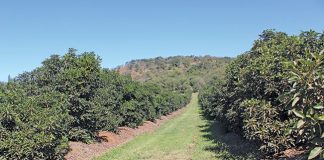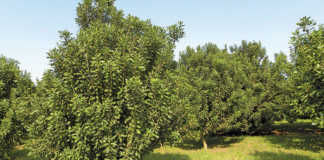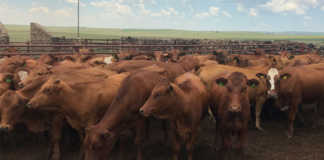It did, however, confirm the deaths of 20 cows worth between R8 000 and R10 000 each on the Athole Research Farm outside Ermelo. Stemmer Ndala, the department’s chief director of professional services, rejected claims that the department had left pregnant Drakensberger cows to starve to death. He said due to the harsh winter and scarce grazing, cattle in the area, including those on private farms, had a difficult season. Currently, there are about 600 animals on the farm, of which 336 are Drakensberger and Boran cattle. Although not in the best condition, most of these are fine, said Ndala.
Suffered
Pregnant heifers suffered the most in the harsh cold. The department has called in vets to carry out autopsies on animals that died, said Ndala. “We cannot conclude that the cattle died of starvation without proper tests being done.” In the meantime, the department has procured more feed and the cattle are being monitored. “We’ve moved cattle from the camps into kraals, where we are feeding and observing them,” said Ndala.
He also said the department had met with the National Council of SPCAs (NSPCA) and outlined its contingency plans. Andries Venter, NSPCA’s farm animal protection unit manager confirmed that a meeting had been held with senior farm management on 1 September. “By then management had provided sufficient supplementary feeding and improvements were observed in the cattle’s behaviour,” said Venter.
However, he said a warrant was served and management was informed that if correct supplementary feeding was not provided, action would be taken. Venter said the NSPCA had recently responded to multiple reports of starving cattle on private and government farms. Each instance involved lack of planning and even negligence, he said. It was well known that there was no natural grazing during winter and farmers had to plan to provide supplementary feeding to their animals.
Research
Job Mthombeni, Mpumalanga chairperson of the African Farmers Association of South Africa, said that, after hearing about the incident, he visited the farm and found that the workers had started feeding the animals. With proper care, they should be able to save the cattle, he said. Ndala said the cattle were not intended for small-scale farmers, but were kept for research purposes.











